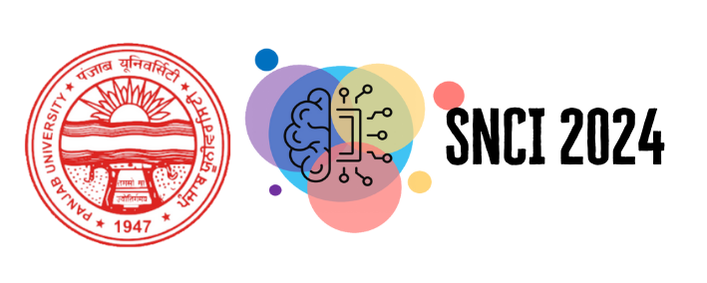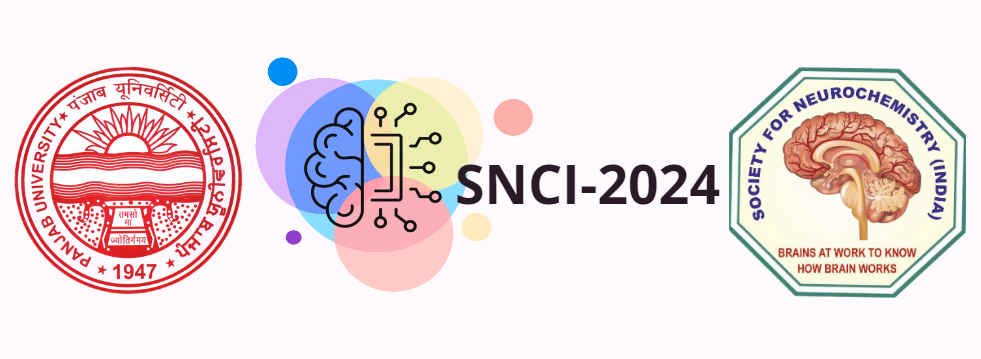Echoes Around the Globe Significant world news updates and the evolving narrative of our times.
- Echoes Around the Globe: Significant world news updates and the evolving narrative of our times.
- Geopolitical Shifts and International Relations
- Economic Trends and Global Markets
- The Rise of Sustainable Investing
- The Future of Work and Automation
- Social and Cultural Transformations
- Technological Advancements and Digital Divide
- Environmental Challenges and Climate Action
Echoes Around the Globe: Significant world news updates and the evolving narrative of our times.
The constant flow of information in the modern world means staying informed about global events is more crucial than ever before. Access to current affairs, political developments, and social changes happening worldwide profoundly influences our understanding of the world and our place within it. This readily available stream of news, however, often comes with challenges— discerning credible sources, navigating media bias, and processing the sheer volume of data can be overwhelming. A nuanced and critical approach is necessary to interpret these events effectively.
This article aims to provide a comprehensive overview of some of the most significant happenings around the globe, focusing not just on the events themselves, but also on the wider context and potential implications. We will explore several key areas of international concern, analyze emerging trends, and consider the factors shaping our increasingly interconnected world, with the intent of delivering informed global awareness.
Geopolitical Shifts and International Relations
Recent months have witnessed a considerable reshaping of the geopolitical landscape. Diplomatic tensions between major global powers continue to escalate, impacting trade agreements, security alliances, and international cooperation on critical issues such as climate change and global health. The rise of new economic powers and the evolving roles of existing ones are creating a multi-polar world order, demanding a re-evaluation of traditional diplomatic strategies and approaches. The implications of these shifts are far-reaching, affecting both national and international security.
Furthermore, regional conflicts remain a major source of instability. Ongoing disputes and power struggles in various parts of the world not only cause immense human suffering but also threaten to spill over into wider regional crises. International efforts to mediate these conflicts often face complex challenges, including competing interests, political obstacles, and the involvement of non-state actors. A proactive and concerted approach to conflict resolution is vital for maintaining global peace and security.
Here’s a comparison of key alliances and their influence across different continents:
| NATO | North America & Europe | United States, Canada, United Kingdom, France, Germany | Collective defense, security cooperation |
| Shanghai Cooperation Organisation (SCO) | Eurasia | China, Russia, India, Pakistan | Regional security, economic cooperation |
| African Union | Africa | All African nations | Economic integration, peace and security, human rights |
Economic Trends and Global Markets
The global economy is currently navigating a period of uncertainty, characterized by rising inflation, supply chain disruptions, and concerns about a potential recession. Geopolitical events, such as the conflict in Ukraine, have exacerbated these challenges, causing energy prices to soar and disrupting global trade flows. These economic pressures are impacting businesses and consumers worldwide, leading to increased costs of living and slower economic growth.
However, alongside these challenges, there are also signs of resilience and innovation. Emerging markets are showing strong growth potential, and technological advancements are creating new opportunities for economic development. The increasing adoption of digital technologies, such as artificial intelligence and blockchain, is transforming industries and creating new business models.
Here’s a breakdown of the projected GDP growth rates for several major economies:
| United States | 2.1% | 1.8% |
| China | 5.2% | 4.8% |
| Germany | 0.9% | 1.9% |
| India | 6.5% | 6.8% |
The Rise of Sustainable Investing
A significant trend in the financial world is the growing demand for sustainable and responsible investing. Investors are increasingly seeking to align their financial goals with their values, prioritizing companies that demonstrate strong environmental, social, and governance (ESG) practices. This shift is driving a significant increase in investments in renewable energy, clean technology, and social impact initiatives. Strong ESG performance is no longer just a matter of corporate social responsibility; it is increasingly recognized as a key driver of long-term value creation. However, measuring and reporting ESG performance effectively remains a challenge, leading to debates about standardization and transparency.
Moreover, the sustainable investing landscape is continually evolving with a growing number of investment products designed to cater to this demand. These include ESG funds, green bonds, and impact investing strategies. Despite this surge in interest, questions remain about the genuine effectiveness of sustainable investing in driving positive change, and the potential for “greenwashing” – the practice of exaggerating or misrepresenting a company’s environmental credentials – needs to be addressed.
Several factors contribute to the momentum behind sustainable investment:
- Growing awareness of environmental and social issues
- Increasing demand from institutional investors
- Regulatory pressures to disclose ESG information
- Demonstrated link between ESG performance and financial returns
The Future of Work and Automation
Automation and artificial intelligence are rapidly transforming the nature of work, creating new opportunities but also posing significant challenges for workers and economies worldwide. While these technologies have the potential to boost productivity and efficiency, they also raise concerns about job displacement and the need for workforce retraining. Adapting to this changing landscape requires proactive policies to support workers in acquiring the skills needed to thrive in the future economy. Furthermore, it’s vital to address the ethical implications of automation and ensure that its benefits are widely shared.
The future of work is likely to be characterized by increased flexibility, remote work arrangements, and a greater emphasis on lifelong learning. Workers will need to be adaptable, resilient, and equipped with a range of skills, including critical thinking, problem-solving, and creativity. Educational institutions and training programs have a crucial role to play in preparing the workforce for these changes, focusing on skills that are not easily automated and emphasizing the importance of human interaction and collaboration.
Here’s a list of skills predicted to be most in-demand by 2027:
- Analytical Thinking and Innovation
- Active Learning and Learning Strategies
- Creativity, Originality, and Initiative
- Technology Use, Digital Literacy, and Programming
- Leadership and Social Influence
Social and Cultural Transformations
Across the globe, societies are undergoing profound social and cultural transformations, driven by factors such as demographic shifts, migration patterns, and technological advancements. The increasing interconnectedness of the world is fostering greater cultural exchange, but also raising concerns about the preservation of cultural diversity and the potential for cultural homogenization. These shifts present both opportunities and challenges for promoting social cohesion and understanding.
Migration patterns are altering the demographic makeup of many countries, leading to increasingly diverse societies. While immigration can bring economic benefits and enrich cultural life, it can also create social tensions and challenges related to integration and identity. Effective integration policies are crucial for ensuring that immigrants are able to fully participate in society and contribute to economic growth.
The following table illustrates the top countries of origin and destination for migrants:
| India | United Arab Emirates | 3.5 million |
| Mexico | United States | 19.9 million |
| Philippines | Saudi Arabia | 2.2 million |
| Syria | Turkey | 3.6 million |
Technological Advancements and Digital Divide
Technological innovation continues at an unprecedented pace, with profound implications for all aspects of life. Advances in areas such as artificial intelligence, biotechnology, and nanotechnology are creating new opportunities for solving global challenges, but also raising ethical and societal concerns. Ensuring that these technologies are developed and deployed responsibly is crucial for maximizing their benefits and mitigating potential risks.
However, the benefits of technological progress are not evenly distributed. The digital divide – the gap between those who have access to and can effectively use digital technologies and those who do not – remains a significant challenge. Bridging this divide requires investments in infrastructure, education, and digital literacy programs. Furthermore, it is essential to address issues of affordability and accessibility to ensure that everyone can participate in the digital economy.
Consider the impact on areas like education, healthcare, and governance. Technology is dramatically changing how these sectors operate.
Environmental Challenges and Climate Action
The climate crisis remains one of the most pressing challenges facing humanity. Rising temperatures, extreme weather events, and sea-level rise are already having devastating consequences around the world, and the impacts are expected to become more severe in the years to come. Urgent and concerted action is needed to reduce greenhouse gas emissions and mitigate the effects of climate change. This requires both individual and collective efforts, including transitioning to renewable energy sources, improving energy efficiency, and adopting sustainable land-use practices.
International cooperation is essential for addressing the climate crisis effectively. The Paris Agreement provides a framework for reducing greenhouse gas emissions, but stronger commitments and greater ambition are needed to achieve its goals. Furthermore, financial assistance is crucial for helping developing countries adapt to the impacts of climate change and transition to a low-carbon economy. The scale and urgency of the climate crisis demand a transformative shift in our energy systems, economic models, and lifestyles.
The urgent need to tackle these complex issues demands continuous observation and analysis. Staying informed, engaging in critical thinking, and pursuing collaborative solutions are vital for navigating the challenges, and embracing the possibilities of our rapidly evolving world. Successfully addressing challenges requires global cooperation and shared responsibility to build a more sustainable and equitable future.



